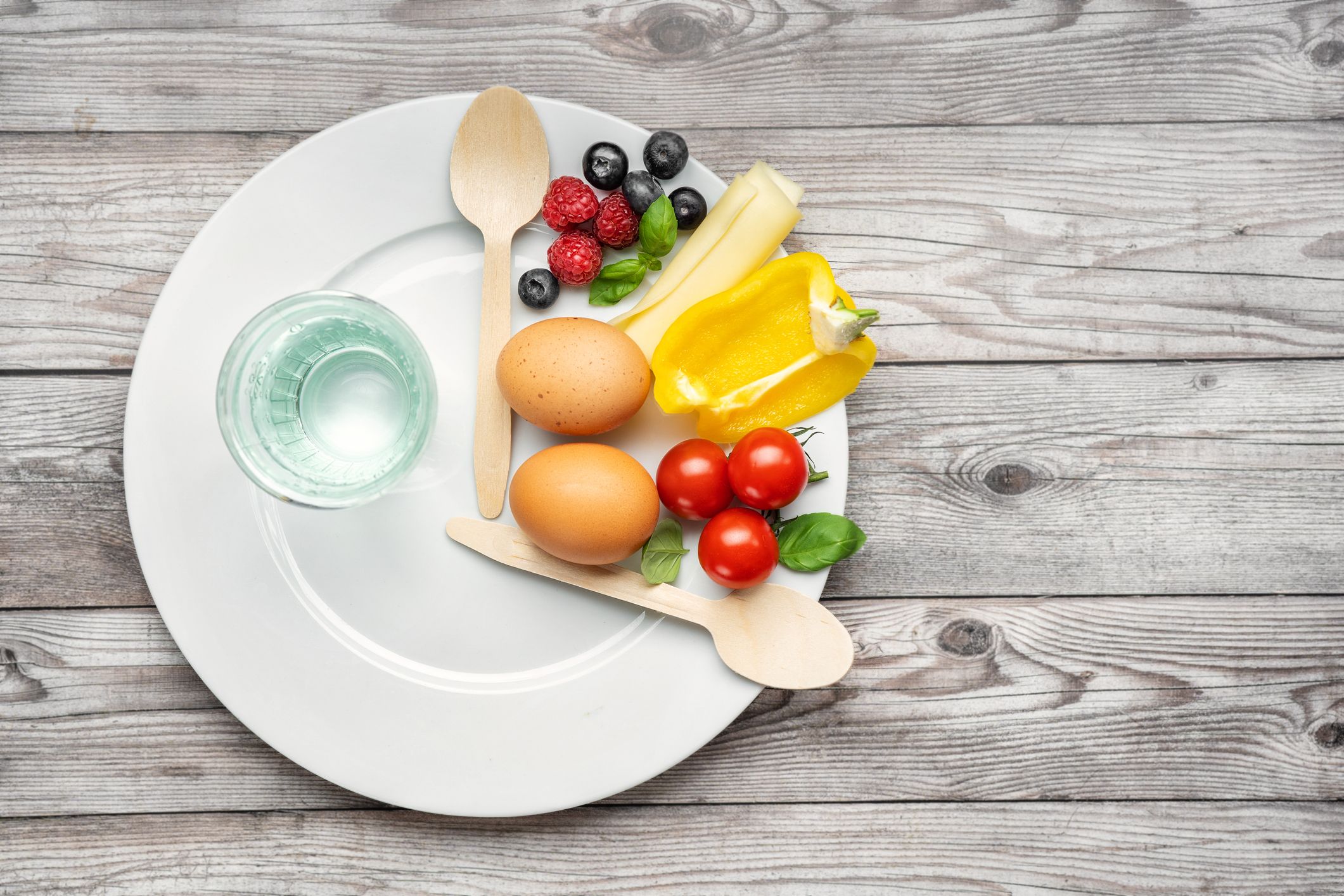Search “boiled egg diet” and you might be shocked to learn that, yes, there is a weight-loss trend out there that circles around eating hard-boiled eggs. Since you probably have *a lot* of questions right now, we’ll clear it up for ya.
To start, the boiled egg diet doesn’t involve eating only eggs (whew). The boiled egg diet is based on the idea that eating at least two or three hard-boiled eggs per day can help you lose weight.
But are boiled eggs really the food that’s going to be the X factor to weight-loss success? Spoiler: probably not. But there’s a lot to this, so we chatted with experts about the boiled egg diet, the results that it brings, and how it can impact your body.
What is the boiled egg diet?
Yes, there are boiled eggs involved. “Although there are some varieties of this plan, it typically involves eating two eggs with fruit at breakfast and eggs or another lean protein at lunch and dinner, along with only non-starchy vegetables,” explains New York City-based dietitian Erin Palinski-Wade, RDN.
Though it may sound relatively healthy, the boiled egg diet is a fad diet. “This is a version of a low-calorie, low carb diet that will promote weight loss, but will not be sustainable long-term and does not provide your body with balanced nutrition,” she says. You may lose weight temporarily, but the results won’t necessarily last.
How do you follow the boiled egg diet plan?
“There are different versions of the diet, but the most common consists of three meals per day, and no snacks or desserts,” says Keri Gans, a registered dietitian nutritionist in New York City.
Throughout the day you need to make sure you’re eating three eggs, or two eggs at the very minimum. You’re also free to consume lean proteins, non-starchy veggies, specific fruits, and a little bit of fat, Gans notes. More specifically, some samples of “allowed” foods, according to Gans, are the following:
Lean Proteins
- Skinless chicken
- Skinless turkey
- Skinless duck
- Fish
- Pork tenderloin
- Pork sirloin
Non-Starchy Vegetables
- Kale
- Zucchini
- Spinach
- Bell peppers
- Asparagus
- Celery
- Carrots
- Broccoli
- Onions
Limited Fruits
- Watermelon
- Berries
- Grapefruit
- Lemons
- Limes
Small Amounts Of Fat
- Coconut oil
- Butter
- Mayonnaise
That said, while there are some common foods that you’re able to eat on the boiled egg diet, there’s also a significant list of foods that you are not supposed to eat while following this limited plan. “Other than eggs, non-starchy vegetables, and a small bit of fruit, other food groups such as grains, dairy, and fats are all off limits,” Palinski-Wade says.

Specifically, the diet suggests avoiding all processed foods, and even other veggies like potatoes, corn, peas, and legumes, Gans says. You’re also asked to avoid some fruits: bananas, pineapple, mango, dried fruits, and sweetened beverages, Gans explains.
So, if you’re aiming for a balanced diet that includes grains, dairy, various fruits, and fats (which is totally understandable), it’s important for you to note these limitations before diving into a hard-boiled-egg-focused plan.
Is the boiled egg diet healthy?
Not quite. “The recommended foods on the diet do have health benefits, but because there are also so many other foods to avoid, the diet is considered highly restrictive,” Gans explains.
You should also know there are long-term concerns. “This is a restrictive, unbalanced way to eat that could result in nutritional deficiencies long-term and is not sustainable,” Palinski-Wade adds.
Best to chat with a health care provider before trying it.
Will the hard-boiled egg diet help you lose weight?
If weight loss is important to you, know that you’ll probably lose weight on this diet, Palinski-Wade explains, since it’s low in calories and carbs. “The initial weight loss will include water losses, resulting in ‘exciting’ results, but not much actual loss of body fat.
Over time, the calorie deficit will lead to losses in body fat, but the chances of maintaining these results are low based on how restrictive it is,” Palinski-Wade notes.
What are the potential dangers of this diet?
It’s true that eggs are a versatile, nutrient-rich food, packed with vitamins and minerals, and “are a great addition to any eating plan,” Gans says. “But one should never simply focus on one food or nutrient in order to lose weight.” So if you’re going to try out the boiled egg diet, be sure to diversify your protein sources and eat a variety of foods so that you’re not getting all your nutrients from the same meals each day.
If you have a history of disordered eating or feel that you might be susceptible to an eating disorder, reconsider the boiled egg diet, Palinski-Wade says.
Another reason why results are hard to maintain? “Because the diet is highly restrictive, you’re not actually learning anything about how to eat a healthy, well-balanced diet for long-term success, but rather how to deprive yourself of eating foods you may enjoy,” Gans says. If you have a history of disordered eating or feel that you might be susceptible to an eating disorder, reconsider the boiled egg diet, Palinski-Wade says.
Most likely, you’ll end up regaining weight you lose, and possibly more, since you may wind up overeating following such a restrictive plan, Palinski-Wade says. Proceed with caution. (But if you like hard boiled eggs, eat them in moderation!)
The bottom line: The lack of variety in the boiled egg diet diet creates an unsustainable and possibly nutrient-deficient diet if done long-term.
Source: Read Full Article






